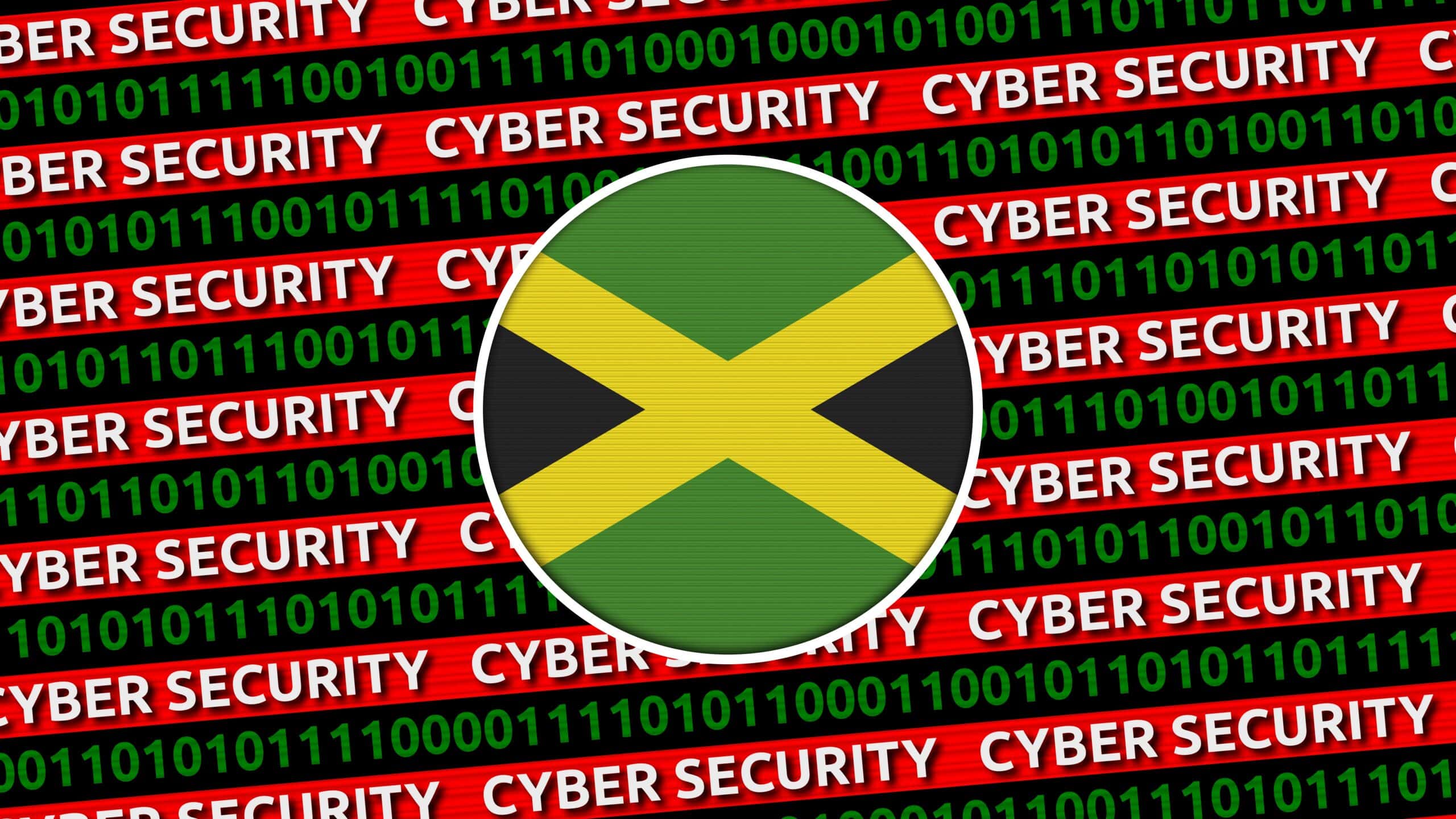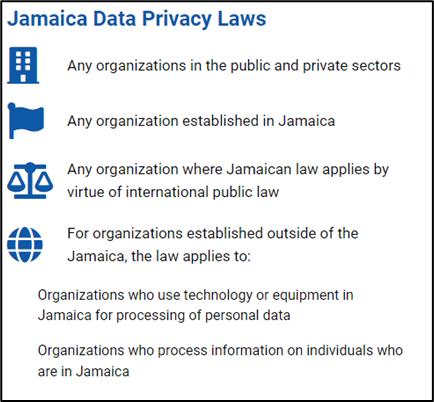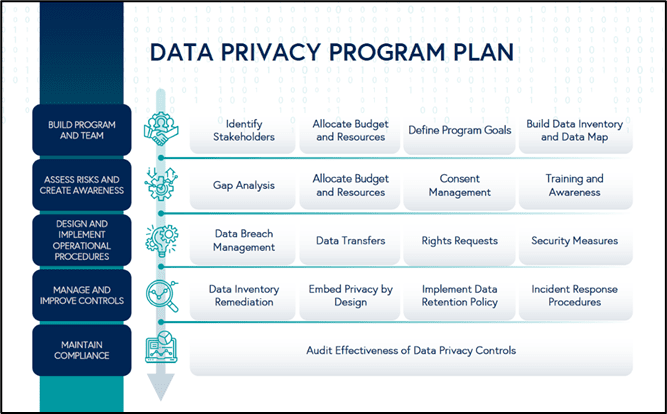
Ah, Jamaica. The mention of this Caribbean Isle conjures up pleasant thoughts of swaying palms, beautiful beaches, reggae music, and good Jamaican rum. However, like most rapidly digitizing nations, Jamaica isn’t immune to the scourge of cybercrime.
In this post, we’ll turn the spotlight on the issue of cybersecurity and data privacy in Jamaica, considering the nature and scope of the current threat and the steps the government and businesses are taking to better protect themselves.
With a population of 2.98 million, Jamaica is the third-most populous Anglophone nation in the Americas, after the U.S. and Canada. In January 2022, there were 2.03 million internet users in Jamaica. This represents about 68.2% of the total population, a figure that’s up from around 55% in 2017. Cybersecurity attacks have been increasing in Jamaica and the rest of the Caribbean and Latin America at a rate commensurate with the region’s ongoing digitization:
In October 2022, a cyberattack on Massy Distribution Jamaica, one of the country's largest suppliers of consumer and pharmaceutical goods, made headlines. This was the second cyber-incident to hit a member of the Trinidad-based Massy Group this year. In April, a ransomware attack forced the company to close stores in Trinidad and Tobago. Hackers effectively froze the grocery chain’s point-card system and exfiltrated approximately 216 gigabytes of data before encrypting it. It’s alleged that the exfiltrated files were subsequently posted on the dark web. The country’s financial institutions are frequent targets to these attacks.
The 2018 Financial Stability Report published by The Bank of Jamaica (BOJ) revealed that banks in Jamaica were falling victim to an average of about two cyberattacks every week and that threat actors had siphoned up to $10 million in a single month. At that time, average losses stood at over $4 million per month.
The 2021 report, published in March of this year, noted that between January 2018 and October 2021, bank fraud losses averaged $1 billion per annum. This figure represents about 0.05% of Jamaica’s gross domestic product. It also noted that debit and credit card fraud was the most prevalent, accounting for 84.6% ($3.3 billion) of fraud losses over the period. Incidents of fraudulent wire transfers, cheques, and loans; internal fraud; and Internet banking fraud were also widespread.
The BOJ also highlighted a concerning spike in SIM swap scams, whereby fraudsters attempt to access online banking platforms via mobile numbers tied to customers’ accounts. Consumers who are defrauded in such cyber-incidents often face a long and uphill battle to get their money returned, as one victim explained in a recent news article:
“I must tell you that in Jamaica, recovering stolen money can be an extremely long and frustrating process. I was the recent victim of an attack. All of my money was wiped out of my accounts, and cash advances taken from my credit cards. This happened the day that my salary went into the account.
“When I contacted customer care, they sent me to the closest branch to make a formal report. I was at the branch from 8:15 a.m. to 3:50 p.m. At the end of the day, I was told that recovering my month’s salary along with the other funds taken from my account would take between 30-120 days.”
In response to the concerning increase and sophistication of cyberattacks in the country, the Jamaica Cyber Incident Response Team (JaCIRT), which monitors and responds to cyber threats, has embarked on public awareness initiatives to educate targeted groups about how they can better protect themselves. JaCIRT has engaged directly with over 80 entities over the course of the last financial year as part of this effort.
In addition, with the assistance of the Organization of American States, it’s deployed an early warning system that allows it to see attacks happening in real-time, monitor attackers’ activities, and respond accordingly. According to Jamaica’s Minister of Science, Energy, and Technology, Daryl Vaz, "This facility provides invaluable insight into attacks, which are used to provide assistance in reducing the likelihood of recurrence and shortening response time.”

Jamaica, along with other jurisdictions in the region, has also advanced along the anti-cybercrime legislative path by passing data privacy legislation similar to the European General Data Privacy Regulation (GDPR).
The Data Protection Act of 2020, enacted in May 2020, applies to any individual or entity that collects the personal data of any individual. The Jamaican Data Protection Act 2020 (“JDPA”) is Jamaica’s first comprehensive privacy law, governing the collection, process, storage, use and disclosure of personal information. CONSENT is the legal basis for processing information, and shall be determined “freely given” by either a written statement or an affirmative act that signifies the agreement of processing personal information.
According to the Act, such parties must design organizational and technical controls that safeguard how they use sensitive personal data or risk facing severe non-compliance fines or even imprisonment. Here are some of the Act’s key requirements and specifications:

While these initiatives and regulations may be seen as welcome progress in the battle to curb cybercrime in Jamaica, businesses need to ensure they’re also stepping up to protect their employees, customers, and shareholders from the devastating impact of a successful data breach. Let’s explore some ways to do this:
There are encouraging signs that Jamaica’s government and business community are joining forces to combat the ongoing cybersecurity threat to the Jamaican economy and its citizens’ livelihoods.
We think the Head of JaCIRT, Lieutenant Colonel Godphey Sterling summed it up best in a recent address:
“Businesses must also recognize the important role they play in the whole cybersecurity ecosystem [and understand] that resilience can only be achieved if we all play our part. As far as the cost for being cyber secure [is concerned], not being cyber secure will cost much more. Let us move forward with our different strengths and weaknesses and, in a collaborative way, build on these so that we can help to build the capability of the cybersecurity ecosystem in Jamaica.”
They Hitachi Systems Security team recommends a Privacy Impact Assessment (PIA) which is a structure review of an information system to identify and mitigate risks, including risks to confidentiality, at every stage of the system life cycle. PIA states what personally identifiable information (PII) is collected and provides a systematic means of answering questions such as:
Ultimately your organization will have clarity concerning the gaps that are in the environments which could be potentially exploited by bad actors. For more information, reach out to our Team in the region - Contact Us.